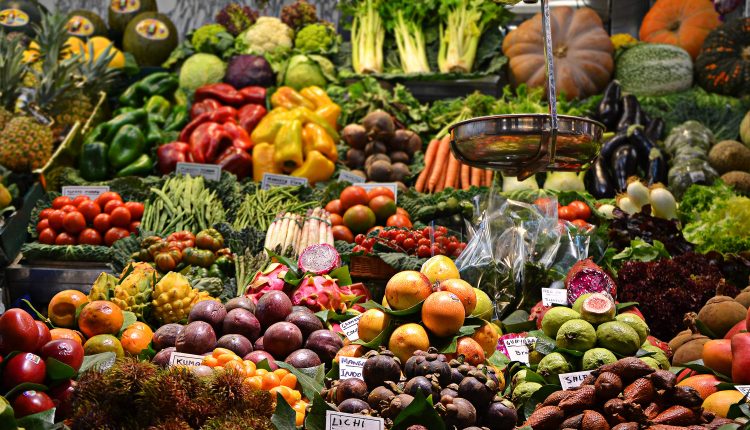BREAKING: Experts Call For Immediate Ban Of GMO Foods In Nigeria

Experts have called for the immediate ban of Genetically Modified Organisms (GMOs) food and glyphosate in the country to protect Nigerians against the health and other hazards resulting from their consumption and usage.
They made the call during a sensitisation workshop with journalists in Abuja where they highlighted the health and socioeconomic issues associated with the importation, cultivation and consumption of GMOs food.
Executive director of Centre for Food Safety and Agricultural Research (CEFSAR), Prof. Qrisstuberg Amua, said evidence suggested a correlation between the rise in GMOs and glyphosate use with an increase in
specific health problems since the 1990s in the United States.
According to Amua, the correlation encompassed conditions such as gastrointestinal disorders, obesity, diabetes, heart disease, depression, autism, infertility, cancer, and Alzheimer’s disease.
The professor of inorganic/bioinorganic chemistry said,
while increased longevity and heightened surveillance might contribute to the rise in these diseases, the dramatic and persistent upswing since the 1990s points to other factors.
“These trends necessitate rigorous, independent scientific research, particularly concerning endocrine disruption, cancer precursors, oxidative stress, gut microbiome, and the Cytochrome P450 pathways. Reduced fertility —as far back as 2001, GM Maize was fingered as a source of natural contraceptives.
“Cancer- proven research: Professor Seralini did a study on rats which he fed GMO for a period and they all developed cancerous tumors. It was taken down temporarily due to sponsored attacks from GM Companies, but eventually, it was republished and still stands to this day.
Amua said that besides these health risks and many more, the introduction of GMOs could lead to the dominance of large biotechnology corporations like Monsanto, potentially displacing smallholder farmers and disrupting traditional farming practices.
He noted that Nigeria’s Seed Variety Act of 2021 creates a risk for smallholder farmers, exposing them to potential lawsuits from seed corporations like Monsanto for seed sharing or processing without permission.
CEFSAR boss said many countries, including Angola, Bhutan, and several European nations, have implemented bans on GMOs due to health, environmental, and socio-economic concerns.
“South Africa’s recent Supreme Court decision to reverse the approval of a GMO maize variety underscores the importance of rigorous risk assessment and due diligence in decision-making processes.
“In conclusion, I pray you to consider the potential risks and implications of GMOs and prioritize the health, environment, and economic well-being of Nigeria and its people. Please use your esteemed office, sir, to ban GMOs and Glyphosate in Nigeria, so we can protect ourselves, our children, and our loved ones from untold pain, suffering, hardship, and misery,” he added.
For his part, Dr Segun Adebayo of Centre for African Policy Research and Advisory, said until a comprehensive, independent national study determines the level of GMO penetration in Nigeria, an immediate and absolute ban on both the importation and cultivation of GMOs must be enforced.
“GMOs are not just an agricultural issue—they are a matter of national security. Countries like the United States and the Soviet Union have historically explored anti-crop weapons, where genetically modified pathogens could be introduced to sabotage food production.
“Nigeria’s dependence on foreign corporations like Bayer Crop Science (formerly Monsanto) for food security is extremely dangerous. If GMOs are being engineered to make Nigerian crops vulnerable to external factors, we could face an engineered famine—one that would look like a natural disaster but would be a planned act of war.
“The unregulated importation of GMOs into Nigeria, pushed by foreign biotech interests, is a national security loophole that must be closed immediately. Until a comprehensive, independent national study determines the level of GMO penetration in Nigeria, an immediate and absolute ban on both the importation and cultivation of GMOs must be enforced.
“Any country that does not control its own food sovereignty is vulnerable to external manipulation. The reckless approval of GMOs in Nigeria, without proper risk assessment, has created a security loophole that could be exploited by foreign powers for agricultural sabotage. This is not just about food—it is about survival,” Adebayo stated.
